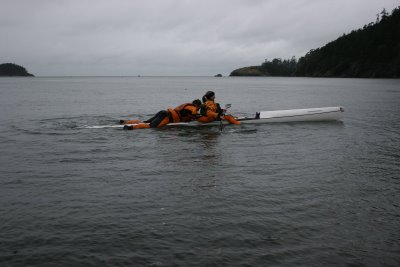mick_allen
Paddler & Moderator
- Joined
- May 15, 2005
- Messages
- 3,585
I'm not 2nd guessing the decision from their point of view. From the text, they thought there was only one variable: both swimming or one going for help. From that aspect, the correct decision was taken no matter what - as at least one survives, and the swimmer at least has a chance of getting found/rescued. Triage reduced to duage.I would honestly not second-guess that one.
From another perspective, it is quite possible to drape over a narrow floating object - especially if 2 drape over from opposite sides. It also is quite possible to paddle with another draped over the rear deck with legs trailing in the water - a ski's rear deck will only be an inch or less above the water with a person on it -. And with the knowledge that it is deadly to be left fully immersed for lengths of time, maybe one of these other options would have been attempted if they had known about them. And other variables would come into play such as the localized wave conditions changing as they drifted/paddled.
So I don't second guess their choice. It was clearly the correct one for their total situation. I'm just questioning the re-assessment of the paddler's choice in the cold light of another day by one of the other paddlers. Or in some way can this incident be instructive?
To me, as I suspect with many paddlers (in whitewater, similar situations happen so much that it's just annoying - espec when the paddle is let go as well), the action taken was astounding.
At least, Todd Ellison's death will be less in vain if we preconsider the simple similar situation: 1 person in the water with no boat, no paddle.


